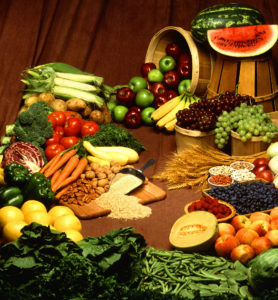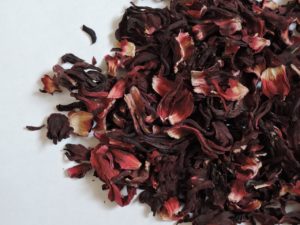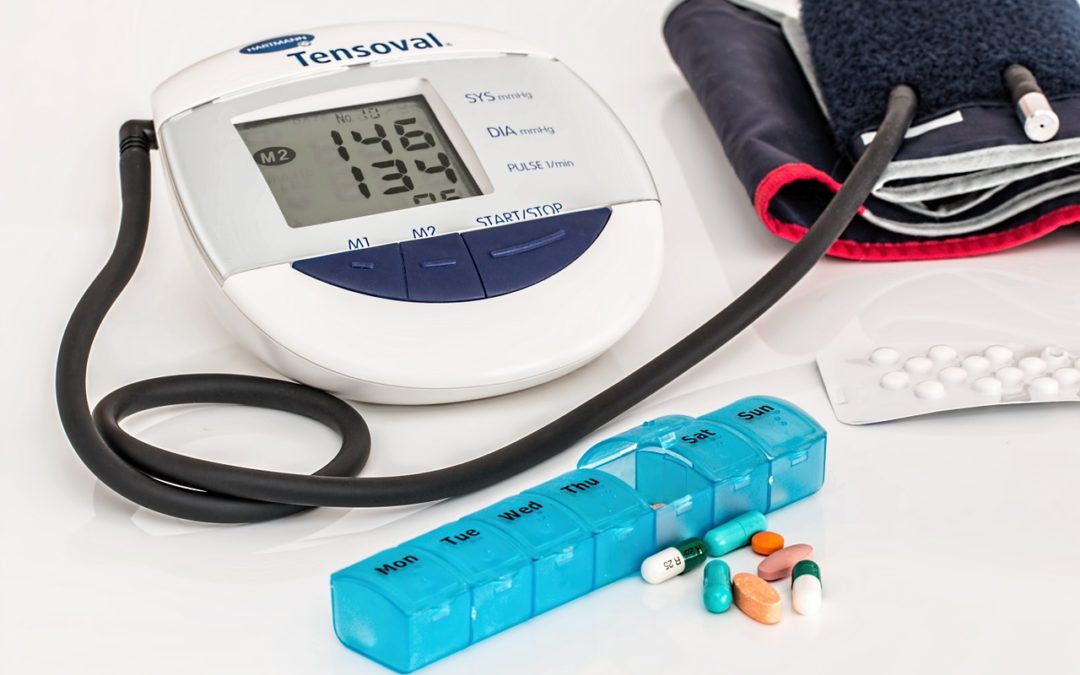Many chronic diseases such as type 2 diabetes; hypertension (high blood pressure); heart disease; age-related cognitive decline including dementia and Alzheimer’s disease; and cancers may be thought of as inevitable part of aging.
Although statistically, the prevalence of these chronic diseases increases with age, especially after age 40, numerous clinical research and studies have shown the strong influence of diets and lifestyle in the prevention and management of these diseases.
Let’s not be part of the statistics!
In Part 2 of this article series, we present a summary of what the latest research have shown in terms of the appropriate diets for the prevention and management of hypertension.
The identified risk factors and contributors are also presented.
Prevalence
According to the CDC, 1 in 3 adults in the United States have hypertension, while only 54% of these people have their hypertension under control.1
Hypertension is often called “the silent killer” as it may not exhibit overt signs or symptoms.
However, hypertension increases the risk of heart disease and is considered the most important modifiable risk factor for heart disease. Hypertension also increases the risk of kidney disease and failure, eye damage, and vascular dementia.2
The normal ranges of systolic blood pressure (SBP) and diastolic blood pressure (DBP) are <120 mmHg and <80mmHg respectively.
Different stages of hypertension have been defined:
- Prehypertension (at risk): SBP of 120 to 139 mmHg, or DBP of 80 to 89 mmHg
- Stage 1 hypertension: SBP of 140 to 159 mmHg, or DBP of 90 to 99 mmHg
- Stage 2 hypertension: SBP of 160 or higher, or DBP of 100 mmHg or higher
Risk Factors and Contributors to Hypertension
Hypertension is attributed to dysfunction of one or more of the blood pressure regulation systems in our body, including:2
- The stress response system including the sympathetic nervous system (SNS) and the hypothalamus-pituitary-adrenal (HPA) axis.
- Kidney and hormonal control of fluid and electrolyte balance and blood volume.
- Blood vessel structure and constriction/dilation function that affect blood flow.
Although hypertension has a strong familial link and multiple genetic abnormalities have been identified, known genetic factors only account for 2-3 percent of all hypertension cases.
On the other hand, our diet and lifestyle choices play a major role in the disease process of hypertension.
Risk factors associated with hypertension include:2–5
- Chronic stress (see more details in Why Stress is the Culprit on how various stressors affects the HPA axis and other body functions)
- High insulin levels and insulin resistance (IR) (including type 2 diabetes)
- Oxidative stress
- Obesity
- Electrolyte imbalance, e.g. due to high sodium intake and inadequate levels of potassium, magnesium, calcium and zinc.
- Kidney impairment
Beneficial Diets and Nutrition for Hypertension
Dietary Patterns Studied in Clinical Research
The main types of dietary patterns evaluated in clinical research are:6–9
- The DASH (Dietary Approaches to Stop Hypertension) diet*
- The DASH diet with sodium restriction to no more than 1500 mg/day (DASH-sodium)
- Modified DASH diet by replacing 10% of daily calorie from carbohydrates with either protein or fat
- Traditional Mediterranean-style diets
- Vegetarian diets
- Vegan diets
- Sodium restriction diet
- Low glycemic diet
- Varying proportion of plant-based versus animal-based protein intake
* The DASH diet consists of plenty of fruits and vegetables; moderate amount of whole grains and lean proteins; and low-to-moderate amount of low-fat dairy, legumes, nuts, seeds, and unsaturated fats. Limiting saturated fat, added sugar and sodium intake (not more than 3300 mg/day) is emphasized.
Highlights of Clinical Research Findings4,6–14
The DASH diet, vegetarian diets and vegan diets were found to be effective in reducing both SBP and DBP for prehypertensive and stage 1 hypertensive patients. The reduction in SBP is in the order of a few mmHg to higher than 10 mmHg.
Reducing sodium intake on the DASH diet to no more than 1500 mg/day reduces the SBP/DBP by 5/4 mmHg in stage 1 hypertensive patients.
Vegan diets was found to be more effective than vegetarian diets in reducing the risk of developing hypertension.
There is also a lot of similarity with the dietary composition beneficial for type 2 diabetes (see details in Diet and Chronic Diseases (Part 1 – Type 2 Diabetes)).
In general, the beneficial dietary pattern consists of:
- High proportion of plant-based foods especially whole fruits, vegetables, and some legumes, whole grains, nuts, and seeds.

- Rich sources of potassium, magnesium and folate from fruits and vegetables.
- Rich sources of antioxidants including flavonoids, lycopene, vitamins C and E from plant-based foods.
- High proportion of unsaturated fatty acids over saturated fatty acids, especially omega-3 polyunsaturated fatty acids (PUFAs) (e.g. cold-water fish, flaxseed and nuts) and monounsaturated fatty acids (MUFAs) (e.g., omega-9 fatty acids and oleic acid, found in olive and avocado).
- Rich sources of vitamin B6, calcium and zinc (can be found in both plant- and animal-based food sources).
- Increased consumption plant-based proteins over animal proteins.
- Limited sodium intake to no more than 1500 mg/day.
These diets are beneficial in mitigating some of the risk factors associated with hypertension including IR, oxidative stress and weight management.
Similar to the diets for type 2 diabetes, it is important to emphasize on whole foods and minimize processed or refined foods.
Other nutritional compounds or supplementation that were found to be effective in reducing blood pressure include:
- Adequate sun exposure and/or vitamin D supplementation to mitigate deficiency
- Alpha-linolenic acid in flaxseed
- Herbal supplementation of olive leaf extract and hibiscus tea or extract
Related Articles
Diets and Chronic Disease (Part 1: Type 2 Diabetes)
Diets and Chronic Disease (Part 3: Heart Disease)
Diets and Chronic Disease (Part 4: Alzheimer’s Disease)
References
- Centers for Disease Control and Prevention. High Blood Pressure (Hypertension) Information | cdc.gov. Cdc.gov. https://www.cdc.gov/bloodpressure/. Published 2018.
- National Heart, Lung, and Blood Institute (NHLBI). High Blood Pressure. Nhlbi.nih.gov. https://www.nhlbi.nih.gov/health-topics/high-blood-pressure.
- Singh M, Mensah G, Bakris G. Pathogenesis and Clinical Physiology of Hypertension. Cardiol Clin. 2010;28(4):545-559. doi:10.1016/j.ccl.2010.07.001
- Houston M. Nutrition and Nutraceutical Supplements for the Treatment of Hypertension. Nutritional and Integrative Strategies in Cardiovascular Medicine. 2015:205-246. doi:10.1201/b18282-10
- Rahmouni K. Obesity-Associated Hypertension. Hypertension. 2014;64(2):215-221. doi:10.1161/hypertensionaha.114.00920
- Eckel R, Jakicic J, Ard J et al. 2013 AHA/ACC Guideline on Lifestyle Management to Reduce Cardiovascular Risk. Circulation. 2013;129(25 suppl 2):S76-S99. doi:10.1161/01.cir.0000437740.48606.d1
- Wang Y, Jr W, Yu D, Champagne C, Appel L, Lin P. The relationship between dietary protein intake and blood pressure: results from the PREMIER study. J Hum Hypertens. 2008;22(11):745-754. doi:10.1038/jhh.2008.64
- Yokoyama Y, Nishimura K, Barnard N et al. Vegetarian Diets and Blood Pressure. JAMA Intern Med. 2014;174(4):577. doi:10.1001/jamainternmed.2013.14547
- Le L, Sabaté J. Beyond Meatless, the Health Effects of Vegan Diets: Findings from the Adventist Cohorts. Nutrients. 2014;6(6):2131-2147. doi:10.3390/nu6062131
- Chen S, Sun Y, Agrawal D. Vitamin D deficiency and essential hypertension. Journal of the American Society of Hypertension. 2015;9(11):885-901. doi:10.1016/j.jash.2015.08.009
- Caligiuri S, Aukema H, Ravandi A, Guzman R, Dibrov E, Pierce G. Flaxseed Consumption Reduces Blood Pressure in Patients With Hypertension by Altering Circulating Oxylipins via an α-Linolenic Acid–Induced Inhibition of Soluble Epoxide Hydrolase. Hypertension. 2014;64(1):53-59. doi:10.1161/hypertensionaha.114.03179
- Hopkins A, Lamm M, Funk J, Ritenbaugh C. Hibiscus sabdariffa L. in the treatment of hypertension and hyperlipidemia: A comprehensive review of animal and human studies. Fitoterapia. 2013;85:84-94. doi:10.1016/j.fitote.2013.01.003
- Rodriguez-Leyva D, Weighell W, Edel A et al. Potent Antihypertensive Action of Dietary Flaxseed in Hypertensive Patients. Hypertension. 2013;62(6):1081-1089. doi:10.1161/hypertensionaha.113.02094
- Pizzorno J, Murray M. T. Textbook of Natural Medicine. ed. St. Louis, MO: Churchill Livingstone; 2013.

